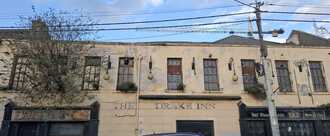- Featured
- Animal Rights
- Anti-racism
- Arts & Culture
- Children
- Climate
- Corporate accountability
- Crime
- Disability rights
- Economic
- Education
- Environment
- Food and Sustainable Production
- Gender Equality
- Governance and Transparency
- Health
- Housing
- LGBT Rights
- Mental health
- Northern Ireland
- Planning
- Privacy and Data Protection
- Rural Inequality
- Social Justice
- Trade
- Transport and Infrastructure
- Workers' Rights
- More
-
No War with Iran: Triple Lock our FutureThe Triple Lock is the only thing that protects Irish Neutrality. It allows Ireland to be independent on the world stage and avoid being dragged into other people's wars. It ensures that Irish soldiers are only sent abroad for genuine peacekeeping missions, not to support invasions of other countries. It's moments like this that the Triple Lock was created for. The world needs neutral peacebrokers now, more than ever. Irish politicians must not abandon Irish Neutrality now, at its most important time in history. P.S. Join our webinar on Wednesday 4th March at 7pm to learn about the campaign to Keep Irish Neutrality https://my.uplift.ie/events/triple-lock-our-future-campaign-launch-webinar1,560 of 2,000 Signatures
-
Katie for Croker!Katie Taylor is pound for pound the best female boxer the world has ever seen, with titles and accolades beyond what most sports people will ever achieve... and she is far more than just that. Katie is an Irish inspiration, both in sport and in spirit, who deserves recognition and appreciation for all she has done, for Irish boxing and for women and girls in sport, but there is just one career goal that she has left to reach, and that is to box in front of a home crowd at Croke Park. Katie has overcome so many obstacles in her boxing journey so far. She had to pretend she was a boy to be allowed to box at first as girls were not allowed to box in Ireland when she started out. She changed that. Katie knew she was capable of getting to Olympics but boxing was the only Olympic sport that had a male but not female category. Katie was a huge part of changing this too as along with an international petition, Katie showcased her skills and directly persuaded the International Olympic Committee members to make women’s boxing an Olympic sport. Katie was told before she could not box at Croke Park because it would be too costly. Now let's get behind her and help her overturn this decision too! Katie realised one of her life's dreams at the 2012 Olympics, where she was one of the first women in the world to win a gold Olympic medal for boxing. Sign and share this petition with every boxing club in Ireland to tell GAA President, Jarlyth Byrnes; Minister for Sport, Patrick O'Donovan; Sporting Island and Katie's promotor, Eddie Hearn, to help her to make her last dream of boxing in front of an Irish crowd at Croke Park come true. Croke Park is the largest and most iconic venue in Ireland. It has a rich history and has hosted many a superstar. The GAA, as excellent promotors of Irish sport could and should support Katie Taylor to realise her dream. The Department of Sport and Sporting Ireland should provide financial support and sponsorship that would allow Katie to fight her last bout there. And Eddie Hearn needs to do everything he can to take care of and promote this awesome fighter and make sure she gets what she wants! Katie never took no for an answer when she was told she could not box in competitions, and she could not box in the Olympics. Let's not take no for an answer to Katie in Croker now!37 of 100 SignaturesCreated by Sinéad Sheehan
-
Turn off the Toxic AlgorithmsFor ourselves, for our children, we must get rid of these toxic algorithms on social media platforms that push harmful content at people, all for the sake of their profits. The First Interim Report of the Joint Oireachtas Committee on Artificial Intelligence published last month recommended that: "Recommender systems should be switched off by default and social media companies should be banned from turning on recommender algorithms for accounts used by children." Numerous studies have shown that social media recommender algorithms are bombarding children with harmful material, including material that promotes self-harm, anorexia and suicide and toxic content that promotes misogyny, racism, homophobia and transphobia. A recent study found that 10 blank male-identified accounts of 16 and 18 year olds on 10 blank smartphones were all fed anti-feminist and other extremist content within just 23 minutes. Within three hours the vast majority of the content recommended was toxic, primarily alpha male and anti-feminist content, with Andrew Tate featuring heavily. Three-quarters of the public believe that there should be stronger regulation of social media algorithms and, in 2024, Coimisiún na Meán’s draft Online Safety Code included a recommendation to turn off recommender algorithms by default. However, this was scrapped following lobbying by the big tech companies. Social media corporations have created an immensely damaging public health and safety crisis in pursuit of profit, but the Government has failed to take any meaningful action.97 of 100 SignaturesCreated by Paul Murphy TD
-
Save Thor – An 8-Year-Old Family Dog Deserves a Fair Second ChanceThor is an 8-year-old German Shepherd who has been part of our family since he was a puppy. For eight years, he has lived with us, been trained, socialised, and cared for without ever showing aggression or biting anyone. Recently, an incident occurred while Thor was being handled by a dog walker and interacting with his own family member. child. During the interaction, the child fell to the ground and the situation escalated. The child was taken to hospital as a precaution and discharged the same day. Despite this, Thor was seized and a District Court has ordered that he be put down under the Control of Dogs Act. We fully respect the seriousness of any incident involving a dog. Public safety matters. But we also believe outcomes must be proportionate and based on full evidence. Thor has no bite history, no prior aggression findings, and veterinary records confirm he has never shown dangerous behaviour, even in stressful clinical environments. We are now appealing this decision to the Circuit Court so that Thor’s full history, temperament, and the medical findings can be properly considered. This petition is not about dismissing what happened. It is about asking for fairness, proportionality, and for every alternative measure to be explored before an irreversible decision is made. If you believe an 8-year-old family dog with no recorded bite injuries deserves reassessment rather than destruction, please sign and support Thor’s appeal.368 of 400 SignaturesCreated by Babar Askary
-
Support the RotundaGovernment created this mess by failing to clarify that the Rotunda’s future is not in Blanchardstown but in Parnell Square. We need Government to make this critical care wing happen, and demonstrate it is committed to keeping the world's oldest maternity hospital in its original home at the heart of our capital city.110 of 200 SignaturesCreated by Ruth O'Dea

-
Improve Sports and Play Facilities in Mountjoy Square!Dublin City Council has announced plans to redevelop Mountjoy Square. https://engage.dublincity.ie/en-IE/projects/re-imagining-mountjoy-square-park-part-8/2 This in and of itself is to be welcomed. No one argues against the park currently being in a squalid state of disrepair. However, the current plans fail, beyond token measures, to provide appropriate play and sports facilities for the youth of the area. We must have sports facilities in Mountjoy Square where we can attract and nurture local young people, offering a pathway to a happy, healthy life in the grey concrete jungle of the North Inner City. Sports and physical activities are not just games; they teach teamwork, discipline, resilience and the value of perseverance. How can we expect our children to thrive if they have no spaces or where they play, learn and grow are neglected? No facilities, cracked courts, worn-out fields send a message that their growth and health are not a priority. The redevelopment of Mountjoy Square is a huge chance to show them that the opposite is true. Dublin City Council shouldn't miss the open goal!249 of 300 SignaturesCreated by Liam Toebes
-
Unquenchable Thirst: OpenAI's Drinking Water Usage and How Trinity Can HelpThe environmental impact of using generative AI is incomprehensible to the general public. In 2025 alone, the data centers used to run OpenAI tools were responsible for 32.6 - 79.7 million tonnes of CO2 emissions. According to OpenAI engineers, clean drinking water must be used to cool the data servers in order to prevent "mineral build-up" in the cooling systems. Data centers are literally using one of humanity's most precious and scarce resources to cool their servers, and it is dwindling by the day. OpenAI's projected water usage could hit 6.6 billion m³ by 2027, which is equivalent to 13.2 billion 500ml water bottles. Although this issue seems out of our hands, students can do their part by helping ban ChatGPT from the Trinity College Dublin Wi-Fi. ChatGPT is the most widely-used generative AI model, thus, blocking access would drastically reduce students' contribution to this ever growing problem. You can help do your part by signing our petition!125 of 200 SignaturesCreated by Ella Flynn
-
FULL-TIME GARDA STATION SERVING THE LUSK–RUSH AREA, CO DUBLINWe the residents of Lusk, Rush, and the surrounding North Fingal communities, call for the assessment and establishment of a permanent, full-time Garda station to serve this rapidly growing area. Over the past three decades, Lusk has grown from a small town of just over 2,000 people to a population of over 9,000, while the wider Rush–Lusk area now serves a combined population of many thousands. roughly over 20,000. This expansion has been driven by significant residential development and continued planning for further housing across Fingal. Fingal is one of the fastest-growing regions in the State, with its population nearly doubling since the early 1990s and substantial additional housing planned through to 2029. Despite this sustained growth, local policing infrastructure has not kept pace with the scale, density, and service needs of the community. Residents increasingly rely on Garda resources based in neighbouring Balbriggan, resulting in reduced visibility, longer response distances, and concern that policing provision no longer reflects the size and character of the population now living in the Lusk–Rush catchment. This petition does not seek temporary measures, but a long-term infrastructure response aligned with national planning and population policy. We therefore respectfully request: 1. A formal assessment by the Department of Justice and An Garda Síochána of policing needs in the Lusk–Rush growth area; 2. The provision of a permanent, full-time Garda station to serve this community; 3. Allocation of staffing and resources proportionate to the sustained population expansion of North Fingal. We submit this petition as evidence of strong community support for aligning public safety infrastructure with the scale of development already delivered by the State and local authority planning policy.876 of 1,000 SignaturesCreated by Ciara D
-
Refuse Aquaculture and Foreshore Licence Application T12-462A in Lough SwillyLough Swilly is not just a stretch of coastline — it is a shared natural resource that belongs to the whole community. It supports protected bird species, fragile sand dune habitats, daily recreational use, and a tourism economy that many local families and businesses depend on. Once large-scale development is approved in protected coastal areas, it is extremely difficult to reverse. Decisions made now will shape the future of the lough for decades. If the wrong balance is struck, we risk long-term ecological damage, further spread of invasive Pacific oysters, loss of amenity, increased marine debris, and harm to the natural landscape that defines this part of Donegal. It is also important because the first application was not widely known within the community, and many local residents did not have an opportunity to make their views heard until after it had already been accepted. Public participation is a fundamental part of environmental decision-making. Communities should be properly informed and given a fair chance to engage before decisions are made — not after. This is about ensuring transparency, fairness and proper protection of a designated and valued coastal environment.1,844 of 2,000 SignaturesCreated by Save Linsfort Beach
-
Allow Dogs on Public Transport in Ireland with Clear and Uniform RulesWe, the undersigned, call on the Irish Government, Transport for Ireland (TFI), and public transport operators — including Dublin Bus, Bus Éireann, Luas, and Irish Rail — to update and standardise current rules to allow dogs on public transportation in a safe and regulated way. At the moment, the rules are inconsistent and often restrictive. They differ from one operator to another and do not meet the needs of thousands of citizens, families, workers, and responsible dog owners. This creates daily challenges and prevents many people from using public transport. Many European countries already allow dogs on buses, trams, and trains under simple and effective regulations such as: • mandatory lead • muzzle if required • reduced‑fare or free pet tickets • peak‑hour limitations only when necessary Introducing clear and modern rules would bring significant benefits, including: • reduced car usage • improved access to public transport • better inclusion for families and individuals living with pets • alignment with European standards • promotion of a more pet‑friendly society We therefore request the introduction of a uniform national policy allowing dogs to travel on public transport across Ireland, in a way that ensures the safety and comfort of all passengers. By signing this petition, you support a more modern, accessible, and pet‑friendly Ireland.15 of 100 SignaturesCreated by Mario Rossi
-
Save Yamamori Izakaya From Being Shut DownWhat happens here will set a precedant for future developments, if we ignore this and let these large corporations win then it will erode nightlife in Ireland.7,833 of 8,000 SignaturesCreated by Alt Dublin
-
Dublin City Council CPO the Finglas ‘Drake Inn’ SiteThe site of the former Drake Inn is a large derelict building in the heart of Finglas Village. It has been derelict for decades. Finglas has a huge need for community buildings that would bring people together and be used by local groups and organisations. Arts and culture events should also be a regular occurrence in Finglas Village, and the area urgently needs more affordable housing. The ‘Drake Inn Site’ could be turned into a community and cultural hub for Finglas, and could also include affordable apartments for people to rent and buy. I have raised this in the Dáil and with Dublin City Council and to date no action has been taken. This is a new opportunity for the people of Finglas to have their voices heard on such an important issue. It's time for long overdue action to be taken on this by the City Council. It's time to CPO the 'Drake Inn' site.115 of 200 SignaturesCreated by Rory Hearne

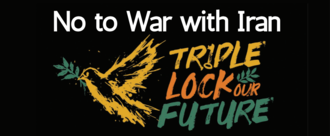
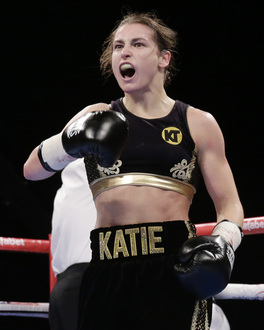
.png)

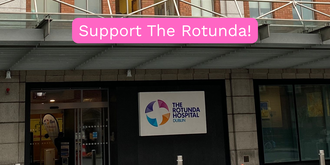
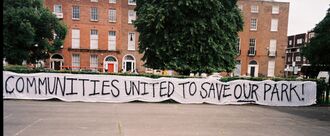
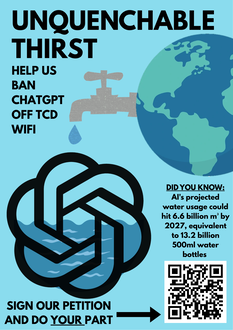

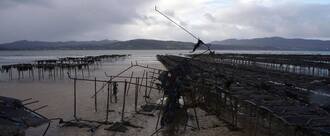
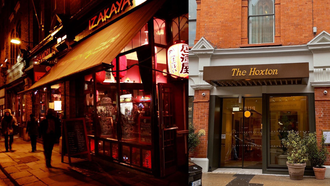.png)
